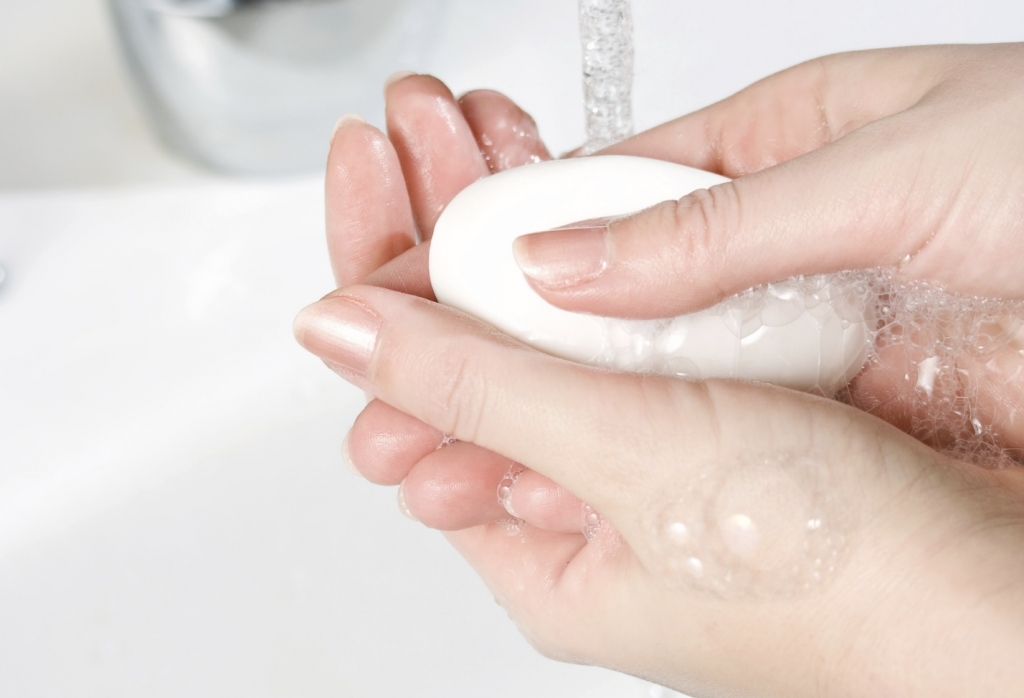7 Ways to Stay Healthy Below the Belt
Most women spend a fair amount of time tending to their vagina and vulva (the outer genitals). We wax, shave, trim—and even bleach. We use balms, creams, cleansers, and wipes.
Despite what many product manufacturers would have you believe, douches, creams, scented tampons, and the countless other feminine hygiene products on the market will not keep you clean and “fresh.” In fact, many of these products can actually be harmful, creating imbalances that can lead to odor-causing infections (talk about irony).
The truth is, less really is more when it comes to keeping a healthy vagina and vulva. Here are 7 ways to keep your lady parts in tip-top shape.
- Keep skin clean and dry.
Too much moisture can disrupt vaginal pH and breed infection. That’s why cotton—a natural fabric that allows air in and moisture out—is king when it comes to vaginal health. To prevent bacterial overgrowth, wear cotton panties or, at a minimum, panties with a cotton crotch. Avoid wearing thong underwear, which creates an easy path for fecal bacteria to make their way from the rectum to the vagina. Don’t lounge around in sweaty clothes or wet bathing suits—change out of them as soon as possible. And, finally, let your skin breathe while you slumber by going panty-free.
- Do Kegels.
Kegel exercises tighten the pelvic floor muscles that surround the vagina. These important muscles support not only the vagina, but also the bladder, bowel, and uterus. Strong pelvic floor muscles can help prevent bladder leaks from stress urinary incontinence, a common problem for women—especially after pregnancy and childbirth. Kegels can also help tighten vagina muscles and even enhance arousal and orgasm. Try using a pelvic floor exerciser like PeriCoach, which guides you through Kegels and displays your progress in real time on your smartphone.
- Just say no to douching.
Your vagina is self-cleaning. It bears repeating. Your vagina is self-cleaning! Unscrupulous feminine hygiene product makers would have you believe you need to douche to feel and smell clean. This is nonsense. Studies show that douching can disrupt vagina pH and put you at an increased risk of infections, pelvic inflammatory disease (PID), and STDs.1 If you notice an unpleasant odor, you may have an infection, such as bacterial vaginosis. See your doctor to determine the root cause.
- Skip the fragrances.
Soaps, body washes, and feminine hygiene products with fragrances can irritate and dry out the sensitive skin around your vulva. Warm water and gentle, fragrance-free soap are all you need. Never use soap internally—use it only to wash your external genitals.

- Use caution with antibiotics.
Antibiotics are powerful weapons against pathogens. Unfortunately, the broad-spectrum variety can also wipe out the good bacteria that keep the vagina and digestive tract healthy. Don’t pass up a prescription you really need, but do ask your doctor about alternatives. Also, consider taking probiotics for women’s health as part of your daily regimen.
- Reconsider your monthly bikini wax.
Waxing can remove more than just unwanted hair—it can damage the epidermis (the uppermost layer of skin). We’ll spare you the many horror stories of bikini waxes gone wrong (if you’re really curious, a quick Google search will keep you cringing all afternoon)—but, wait, there’s more! By opening the pores, waxing also makes you more susceptible to infection, and it can irritate hair follicles, which can lead to ingrown hairs. Pubic hair serves a purpose—protecting the delicate mucosal tissue of the vagina and urethra from irritants, infectious microbes, and allergens. If you just can’t bear the thought of not being bare down there, consider alternatives to waxing, including laser hair removal, sugaring, trimming, or good old shaving.
- Use lube.
If you’re prone to vaginal dryness (and even if you’re not) a water-based lubricant can help ensure more comfortable sex and prevent abrasions, irritation, and chafing. Avoid petroleum jelly, which increases the risk of infections and can cause latex condoms to break down. Also avoid flavored lubricants, which can irritate delicate vaginal and vulvar tissues. If sex is sometimes or always painful, using a lubricant with lidocaine and/or benzocaine can help.
Source:


